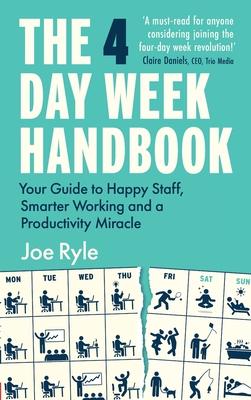What if there was a simple idea that could transform the lives of workers, employers, the economy, our society and our environment?
There is. More and more employers across the world are switching to a 4 Day Week - leaving workers happier and economies healthier.
Written by the director of the UK's 4 Day Week campaign, this official handbook shows why businesses, charities, councils and other entities should implement more efficient working hours (with no loss of pay) - and how.
Because the five-day working week is no longer working for employers or employees. In the UK, we work some of the longest hours in Europe, while having one of the least productive economies.
Stressed out and tired out, workers stagger home on a Friday evening and take some of the weekend to recover.
Working hours have been transformed before. At the turn of the 20th Century, six-day weeks were the norm before the Ford Motor Company invented the weekend. And we are long overdue an update to working hours.
Using real-life case studies from the UK, the Official 4 Day Week shows the positive impact that comes from everyone working one day less a week.
Organisations who tried the idea found major benefits for the health and welfare of their staff - with major benefits for those organisations. The likelihood that workers would resign plummeted by 57%, improving job retention. Sick days fell by 65%, improving productivity.
Companies' revenue stayed broadly the same, rising by 1.4% on average.
This book delves into some of the practical benefits that flow from innovating with employment contracts and working conditions. Governments, businesses, charities, and councils could all benefit from a 4 Day Week.
